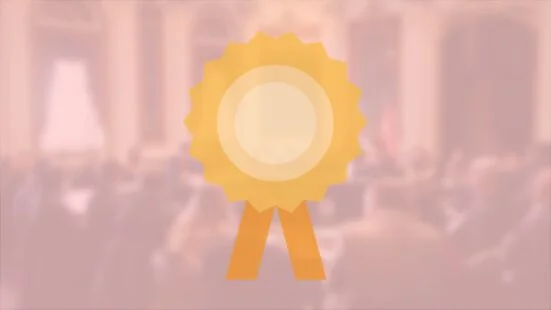Ownership disclosure law creates burdens for startups
What’s in the AI executive order, and what does it mean for Startups?
Intellectual property scams target startups, and how policymakers can help
Bad actors are constantly looking to trick unsuspecting startups into unnecessarily giving up their already-limited resources. One scam gaining in popularity is to impersonate government officials and ask startups for payment to “renew” their existing trademarks, and it demonstrates how intellectual property systems can be weaponized against startups.
The Patent and Trademark Office should work for everyone
You might not realize it, but whether you’re a startup founder, a digital entrepreneur, or a casual technology and Internet user—what the U.S. Patent and Trademark Office (USPTO) does impacts you and the agency needs to be listening to you. That’s why Engine filed comments this week on USPTO’s draft strategic plan, suggesting ways the agency could improve its plans to support all U.S. innovators, creators, and entrepreneurs.
Startups & the U.S. Patent System: Prioritizing Quality and Balance to Promote Innovation
Engine has released a new report that outlines why it is so important for the government to prioritize quality and balance when it comes to patent policy.
Primer: Patents
Startup News Digest 11/16/18
A flood of perspectives on privacy. Late last week, the federal government got dozens of comments from companies, trade groups, non-profits and more on how to approach consumer privacy online. As part of the response to a request for comments on a broad framework for consumer privacy, Engine submitted comments to the Commerce Department’s National Telecommunications and Information Administration, outlining the ways in which various privacy proposals and laws affect startups.
Startup News Digest 10/12/2018
The Big Story: A second Senate privacy hearing. The Senate Commerce Committee held its second hearing on online privacy this week, which included testimony from privacy advocates pushing for federal privacy legislation.
USPTO Weakens Important Program for Fighting Patent Abuse
Engine Statement on House Judiciary Committee Oversight Hearing of USPTO Director Iancu
Engine Statement on Recent Attacks to our Patent System
Congratulations to the new United States Patent and Trademark Office Director
Engine Statement on President Trump’s Pick for United States Patent and Trademark Office Director
Engine looks forward to working with President Trump’s for nominee Andrei Iancu for the position of the Director of the United States Patent and Trademark Office (USPTO). As a non-profit advocacy and research organization that supports startups, we understand what an important position the Director of the USPTO is to protecting the innovation ecosystem.
Engine to Testify before House Judiciary Committee on Bad Patents
HBO’s ‘Silicon Valley’ tackled an issue that’s all too familiar to startups: The threat of frivolous patent litigation
Engine Statement on Michelle Lee Remaining as Director of USPTO
Under Director Michelle Lee, the Patent Office has made real strides toward fixing patent quality. While much work in that area remains to be done, we are encouraged by the steps she and her team have taken and are pleased that she will remain in her role in the incoming Administration so that this important work can continue. Startups in particular rely on a well-functioning patent system, and under Director Lee's leadership, the Patent Office has welcomed the startup community to play a role in that debate. We look forward to continuing working with her to ensure that that the patent system promotes rather than hinders innovation.
How Universities Can Help in the Battle Against Patent Trolls
The patent system was enshrined in the American Constitution as a tool to promote innovation and invention. But as we have lamented again, and again, and again, the current system often has the opposite effect. In recent years, patent trolls—more politely known as non-practicing entities or NPEs—have hijacked the patent system, amassing hundreds and thousands of overbroad, low-quality patents with the sole purpose of suing and forcing companies into costly settlements. Unfortunately, this abusive patent litigation disproportionately impacts startups, entrepreneurs, and innovators (more than 80 percent of patent troll victims are small- and medium-sized businesses, and 55 percent of troll suits are filed against companies with revenues of less than $10 million).
The Fight Against Stupid Patents
So You Want to Hack the Patent System
Are you a startup or inventor wondering what to do about our broken patent system? Want to know what your options are? Check out Hacking the Patent System, an updated white paper published in partnership with EFF and students from the Juelsgaard Intellectual Property Clinic at Stanford Law School.
This paper includes important and timely advice for technology entrepreneurs attempting to navigate a dysfunctional and unfair system because, unfortunately, patent trolls remain a grave threat to startups and innovators. This is despite multiple attempts to pass reform legislation through Congress and an active Supreme Court working hard to fix a broken system. Not only does the threat of extortionary patent trolls still exist, but it’s actually getting worse. Lawsuits filed by patent trolls are up and significantly more than half of those cases are filed in the notorious Eastern District of Texas.
Despite these problems, startups often find themselves filing for patents, either because their investors tell them it’s a good idea or they plan to later use them defensively against lawsuit threats. This has led to a dangerous culture of “patenting up”—getting as many patents as possible in as short a time as possible.
To really fix the problem, a handful of things need to happen:
Congress must pass patent reform legislation that addresses fundamental inequities in the patent system that favor large patent holders and litigation plaintiffs.
Patent quality must be improved. Removing low-quality patents from the system will also remove the trolls’ deadliest weapon.
We must change the culture of “patenting up.” Big companies, investors, startups, and inventors need to come together to take a stand and return the system to its roots, which—as the Constitution provides—is meant to promote the progress of science and useful arts.
That all might take awhile. In the meantime, there are things that startups can do to navigate a broken patent system without hiring an expensive patent lawyer or even filing for a patent itself. We lay out some of those options here in an updated version of our Hacking the Patent System white paper, originally released in 2014. The paper takes a deep dive into alternative patent licenses: specifically, patent aggregators, patent pledges, and (new this year!) patent insurance.
Thanks to partners EFF and the Juelsgaard Intellectual Property Clinic at Stanford Law School—especially former students Marta Belcher and John Casey—for all their hard work.























